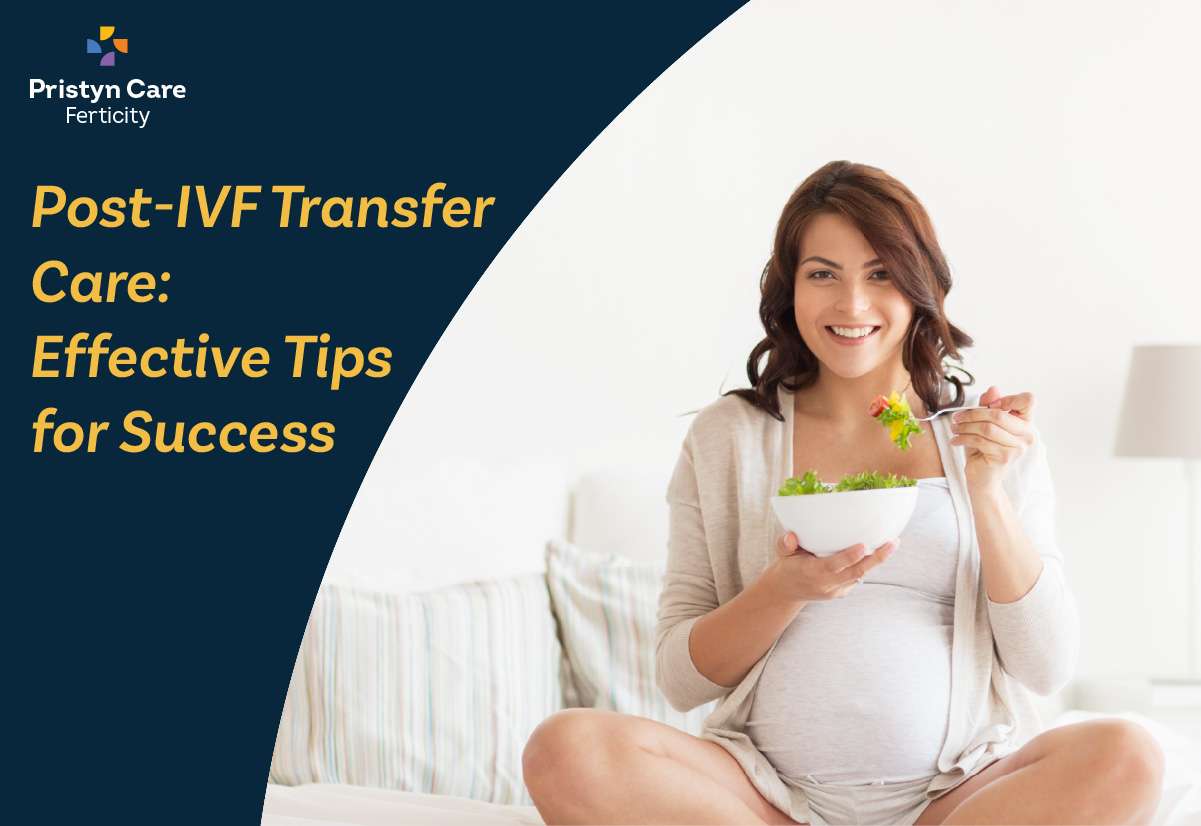The day of your IVF transfer or more widely known as embryo transfer is a big deal. It’s ‘THE MOMENT’ you’ve been eagerly waiting for, and it’s full of hope and miracle. When it actually happens, it’s a huge step in your IVF experience. Post IVF Transfer, it’s completely natural to experience a mix of emotions and wonder what next steps to take. While there’s no guaranteed success, support your body.
Here are a few practical tips for post-IVF transfer care that set you up for success.
Things to do post-IVF transfer
- Enjoy a few days of me-time: You’ve just had a major breakthrough on your IVF journey, a life-changing one. Now, take it slow and give yourself a little more self-love. After embryo transfer, the embryo needs a few days to settle in. Take this as your chance to hit pause. Don’t keep your schedule too tight skip those intense workouts, and just focus on overall well-being.
Truth bomb: you don’t need to be on bed rest (seriously, the embryo isn’t going to come out).
But if this feels like the perfect time to have enough time and space to rest and rejuvenate. No one’s judging. Further, taking it easy is about keeping your mind calm during what can feel like an emotional whirlwind. Watch your favorite shows, pick a book you’ve been wanting to read or immerse yourself in funny videos that make you smile. Whatever helps you feel good, lean into it. Be gentle with yourself, you’ve done something amazing. These moments of care promote successful embryo implantation while giving your body the calm it needs.
- Take prescribed medications: You may have thought of ditching medications post-IVF transfer, but don’t stop until your doctor agrees to it. For many women, progesterone is still crucial in those early weeks. This hormone enables the embryo to implant and stay attached to the uterine wall, allowing your pregnancy the best chance to thrive. Yes, the progesterone shots or vaginal suppositories can sometimes feel challenging, but they play a big role, so hang in there! Your doctor may also recommend baby aspirin. Some studies show that low-dose aspirin improves implantation and pregnancy rates, especially for frozen embryo transfers (FET). But aspirin isn’t for everyone, so stick to your doctor’s plan and don’t make changes on your own. Eventually, those meds give you the best shot at a healthy pregnancy. You got this, so trust the process and keep going!
- Take folic acid supplement: This is the right time to start taking folic acid supplement post-IVF transfer! Taking folic acid throughout pregnancy offers several benefits. To avoid neural tube abnormalities, you must consume this crucial B vitamin in the right dosage as prescribed by the doctor. Folic acid greatly reduces the potential risk of congenital heart abnormalities in the baby. Also, folic acid can even lower the risk of fetus forming cleft lip or palate. Mostly, your folic acid requirement is covered in prenatal vitamins. However, remember that you’ve had a previous pregnancy or child with a defect in the neural tube.
- Go on with a healthy diet: If all goes right, you’ll soon be growing a new life inside you, isn’t that amazing? Now’s the right time to start (or stick with) some healthy eating habits to support you and your baby. Focus on a mix of fruits, veggies, protein, calcium, iron, and B vitamins to keep you strong and nourished. While eating well, make sure to have a prenatal vitamin to your daily routine. It’s an easy way to make sure you’re getting all the essential nutrients you need. This is among the key IVF recovery tips that help save your energy levels for the journey ahead.
Things to avoid during post-IVF transfer care
Of course, there are certain things you better avoid doing following your embryo care:
- Doing a pregnancy test immediately: It’s natural to have a temptation to take a pregnancy test right away, but try resisting the urge. After your IVF transfer, it can take up to two weeks for enough of the hCG hormone to build up for a reliable test result. Meanwhile, count the days until your doctor’s visit, and they’ll do a proper test to confirm everything. Just a little more patience can go a long way!.
- Indulging in sexual intercourse too soon: After your embryo transfer, it’s highly recommended to take a short break from any pelvic activity. Sexual intercourse causes uterine contractions, this can even affect the embryo placed in your uterus. In rare occurrences, having sex too soon could prevent implantation or increase the risk of miscarriage. Don’t fret about it, it’s just a temporary pause. This small step helps give your embryo the best chance to settle in and thrive. This is a crucial part of post-IVF do’s and don’ts that couples should follow for better outcomes.
- Neglecting warning signs: After your embryo transfer, keep a check on any symptoms that may hint at an alarming condition called ovarian hyperstimulation syndrome (OHSS), it happens if your body overreacts to the fertility hormones administered during IVF, which may occur in fresh embryo transfer.
Warning signs of OHSS are abdominal pain, bloating, nausea, vomiting, and diarrhoea. In most cases, it is mild, whereas in serious ones things can escalate fast. If you experience sudden weight gain or intense abdominal pain in your abdomen, immediately call your doctor. Professional care helps tackle the situation the right way whereas indulging in self-medication can lead to greater harm. Monitoring these signs is crucial for after IVF precautions and a smooth journey ahead.
Following these tips is crucial to have a smooth experience following IVF transfer for success. That’s how you’re going to win the waiting game! For expert consultation and comprehensive care with advanced reproductive technology like IVF, ICSI, IUI, book your slot.

